Enneagram Of Personality Types
Plotting Your Position In Life, The Universe, and Everything
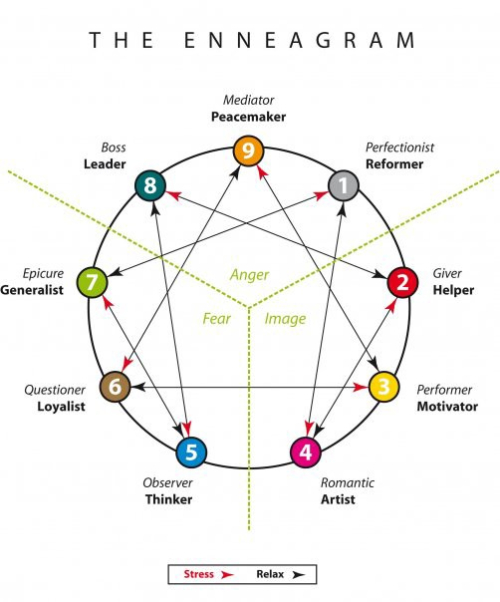
Introduction To The Enneagram Of Personality Types
The Enneagram of Personality Types was originally devised by Oscar Ichazo.
The symbol has roots in antiquity and can be traced back at least as far as the works of Pythagoras. The symbol was reintroduced to the modern world by George Gurdjieff.
Ichazo drew on his knowledge of variety of spiritual and esoteric traditions, but the actual combination of those traditions connected with the symbol is purely his creation.
"The 'Traditional
Enneagram' only goes back to the 1960's when Ichazo was first teaching
it, although the philosophy behind the Enneagram contains components
from mystical Judaism, Christianity, Islam, Taoism, Buddhism, and
ancient Greek philosophy (particularly Socrates, Plato, and the
Neo-Platonists)—all traditions that stretch back into antiquity." [Enneagram Institute]
It is in many ways a modern synthesis of various wisdom
traditions sometimes referred to as Integral Theory and associated with Ken Wilber et al which attempts to synthesise a multi-disciplinary approach to the evolution of life and consciousness into one holistic framework.
Ichazo saw the Enneagram as a tool for looking at specifics of the structure of the human soul and how it becomes distorted by the developing ego.
"We have to distinguish between a man as he is in essence, and as he is in ego or personality. In essence, every person is perfect, fearless, and in a loving unity with the entire cosmos; there is no conflict within the person between head, heart, and stomach or between the person and others. Then something happens: the ego begins to develop, karma accumulates, there is a transition from objectivity to subjectivity; man falls from essence into personality." [Oscar Ichazo]
Enneagram - Descriptions of Personality Types
As you can see from the graphic of the enneagram above, it is represented by a circle with nine equidistant points marked on its circumference, and each point is designated by a number from one to nine, and by convention with nine at the top. Each point represents one of nine basic personality types.
In overview, the Enneagram can be seen as a set of nine distinct personality types, with each number on the Enneagram denoting one type.
It is common to find a little of yourself in all nine of the types, although one of them should stand out as being closest to yourself.
According to the Enneagram system:
- We are all born with a dominant personality type, and this innate orientation shapes how we adapt to our early childhood environment
- We do not change from one basic personality type to another
- The personality types are apply equally to males and females
- Because we fluctuate between the various traits that make up our personality type, not every detail of the description of our type will apply to us all of then time
- Numbers are used to designate types in the enneagram system because they are value neutral
- There is no significance to the numerical ranking of the types
The 9 Types
For an introduction to 9 personality types and the connections between them, please refer to:
The Traditional Enneagram Overview
Do The Tests
Identify your basic personality type:
Free Enneagram Test @ Personality Path
Enneagram Personality Tests @Ecletic Energies
Return to: Managing Personal Change
LATEST ARTICLES
Does Prayer Work? The Psychology of Prayer, Meditation and Outcomes
 Reality Is A Complex System Of Countless Interactions - Including Yours. So does prayer work? The problem is that the question itself is usually framed in a way that guarantees confusion. We tend to a…
Reality Is A Complex System Of Countless Interactions - Including Yours. So does prayer work? The problem is that the question itself is usually framed in a way that guarantees confusion. We tend to a…Living in Survival Mode Without Surrendering Mental Authority
Living in Survival Mode Without Surrendering Mental Authority
 Clear Thinking When You’re Just Trying to Stay Afloat. Many people today are overwhelmed because they are living in survival mode - not temporarily, but as a persistent condition of life. For many, th…
Clear Thinking When You’re Just Trying to Stay Afloat. Many people today are overwhelmed because they are living in survival mode - not temporarily, but as a persistent condition of life. For many, th…Manifestation Without Magic: A Practical Model
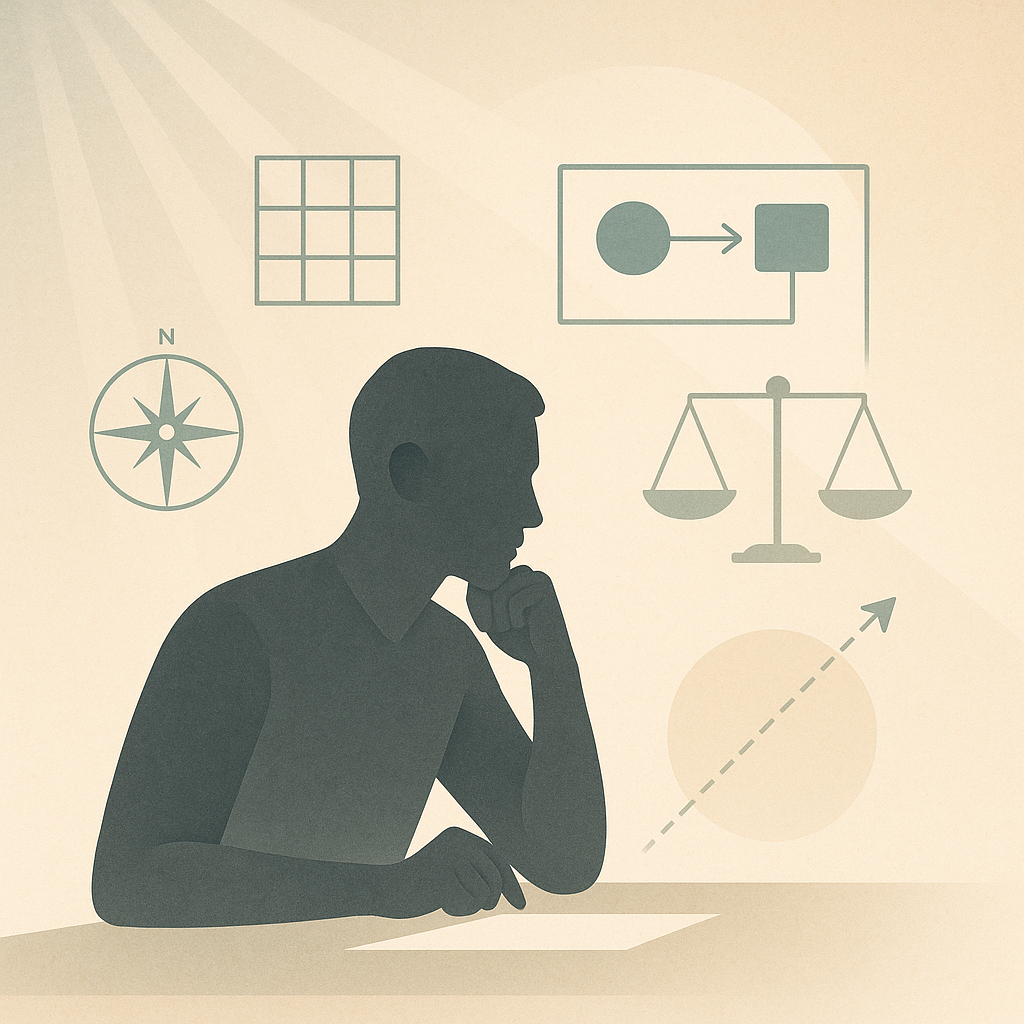 Manifestation without magic is not a softer or more intellectual version of popular manifestation culture. It is a different model altogether. Popular manifestation teachings tend to frame reality as…
Manifestation without magic is not a softer or more intellectual version of popular manifestation culture. It is a different model altogether. Popular manifestation teachings tend to frame reality as…Staying Committed When You Can't See Progress - The Psychology of Grit
 Uncertainty Is Not The Absence Of Progress, Only The Absence Of Reassurance. One of the most destabilising experiences in modern life is not failure, but uncertainty and staying committed when you can…
Uncertainty Is Not The Absence Of Progress, Only The Absence Of Reassurance. One of the most destabilising experiences in modern life is not failure, but uncertainty and staying committed when you can…The Battle For Your Mind - How To Win Inner Freedom In A Digital Age Of Distraction
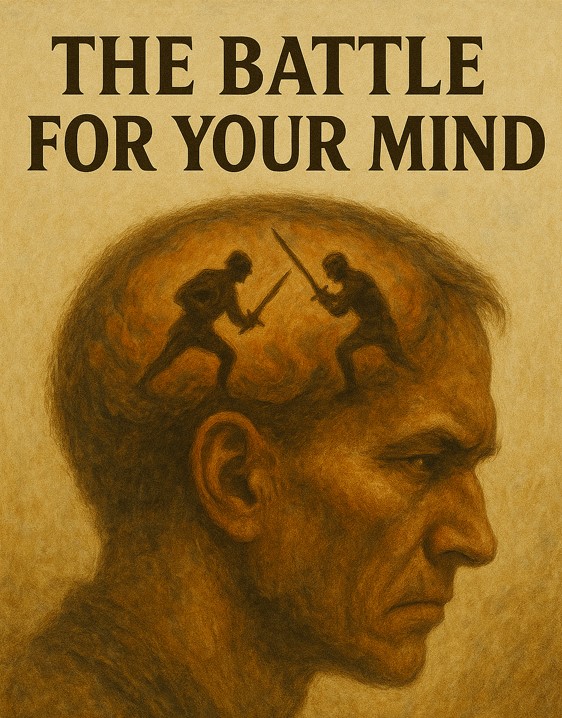 From External Events to Inner Events. We often think of “events” as things that happen out there: the traffic jam, the rude comment, the delayed email reply. But what truly shapes our experience is wh…
From External Events to Inner Events. We often think of “events” as things that happen out there: the traffic jam, the rude comment, the delayed email reply. But what truly shapes our experience is wh…How to See Your Thoughts Without Becoming the Story
 A Practical Guide to Thought-Awareness. You can spend your life inside the stories of your mind without ever learning how to see your thoughts clearly and objectively. Most of the stuff we tell oursel…
A Practical Guide to Thought-Awareness. You can spend your life inside the stories of your mind without ever learning how to see your thoughts clearly and objectively. Most of the stuff we tell oursel…The Collison Decision Matrix - A Simple Framework for Better Choices
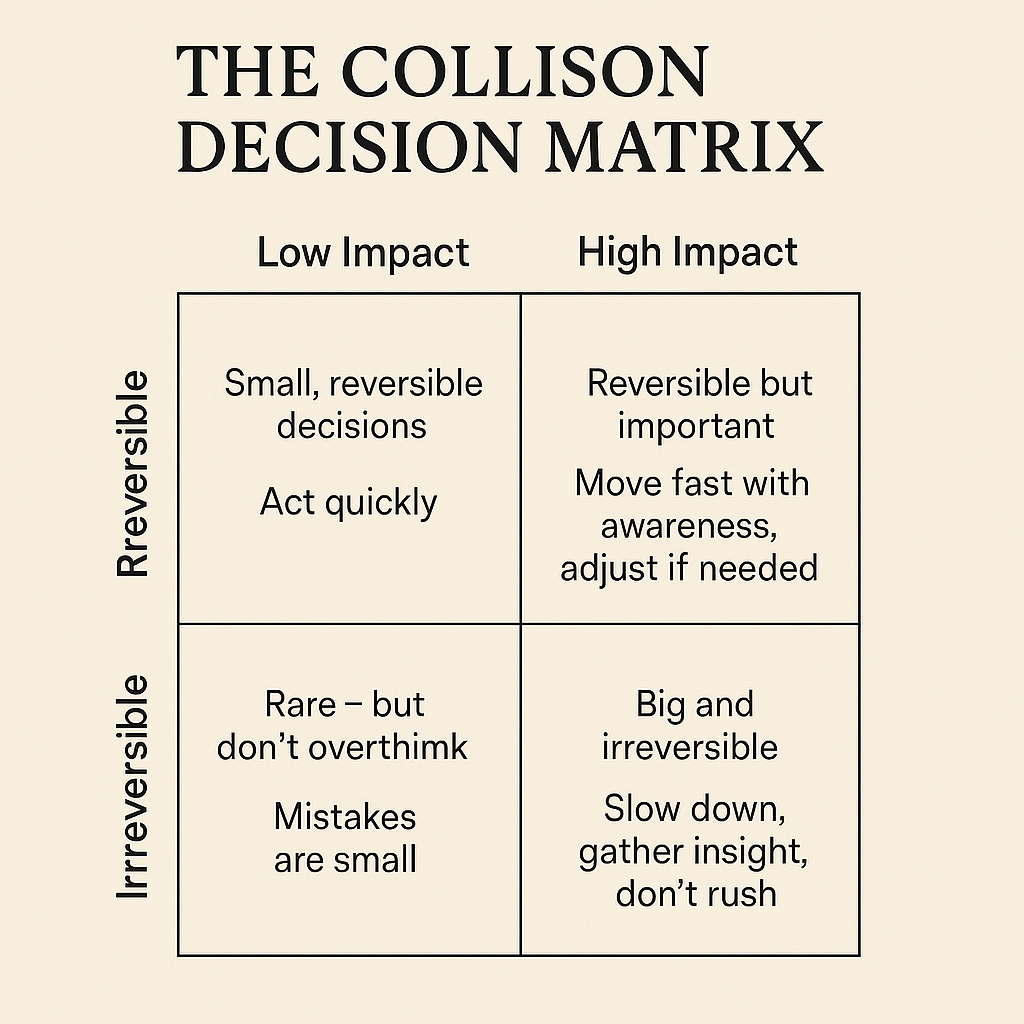 The Collison Decision Matrix Is A Practical Everyday Thinking Tool. Most of us spend a surprising amount of time worrying about decisions. From small ones such as what to wear, what to eat, what to te…
The Collison Decision Matrix Is A Practical Everyday Thinking Tool. Most of us spend a surprising amount of time worrying about decisions. From small ones such as what to wear, what to eat, what to te…The Power Of Asking The Right Question
 The Power Of Asking The Right Question Lies In The Quest For Insight. To experience the power of asking the right question you must develop the practice of asking questions. The best way to improve th…
The Power Of Asking The Right Question Lies In The Quest For Insight. To experience the power of asking the right question you must develop the practice of asking questions. The best way to improve th…Site Pathways
 Here is a site pathway to help new readers of Zen-Tools navigate the material on this site. Each pathway is based around one of the many key themes covered on this site and contain a 150 word introduc…
Here is a site pathway to help new readers of Zen-Tools navigate the material on this site. Each pathway is based around one of the many key themes covered on this site and contain a 150 word introduc…How To Live With Contradiction - Beyond Thought Let Stillness Speak
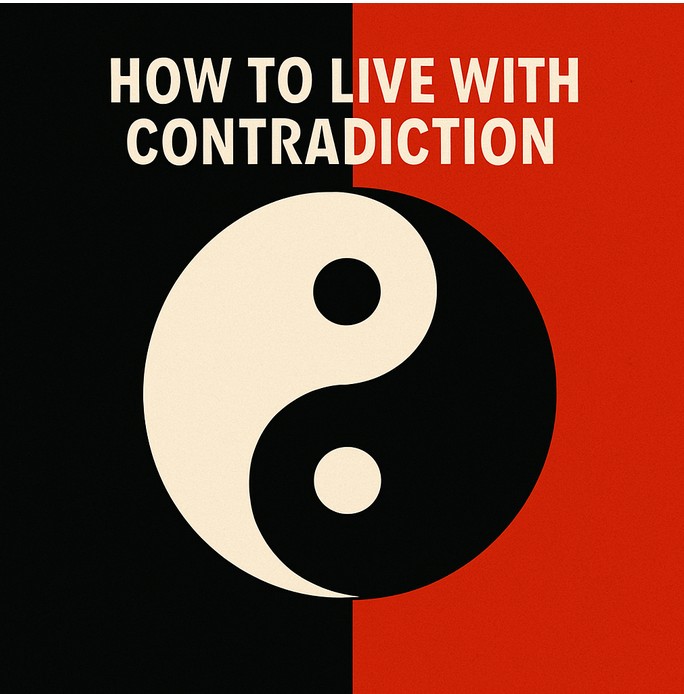 A major impact on so many peoples' lives is the situational contradiction of unfilled realistic expectations. So where does all this leave us? Well here we are, with mental equipment that is more lim…
A major impact on so many peoples' lives is the situational contradiction of unfilled realistic expectations. So where does all this leave us? Well here we are, with mental equipment that is more lim…How To Trust The Process Of Mindfulness - Right Now
 In mindfulness, the process isn’t some distant goal — it's what is happening right now. When we talk about how to trust the process of mindfulness the credibility of the process is heavily dependent…
In mindfulness, the process isn’t some distant goal — it's what is happening right now. When we talk about how to trust the process of mindfulness the credibility of the process is heavily dependent…